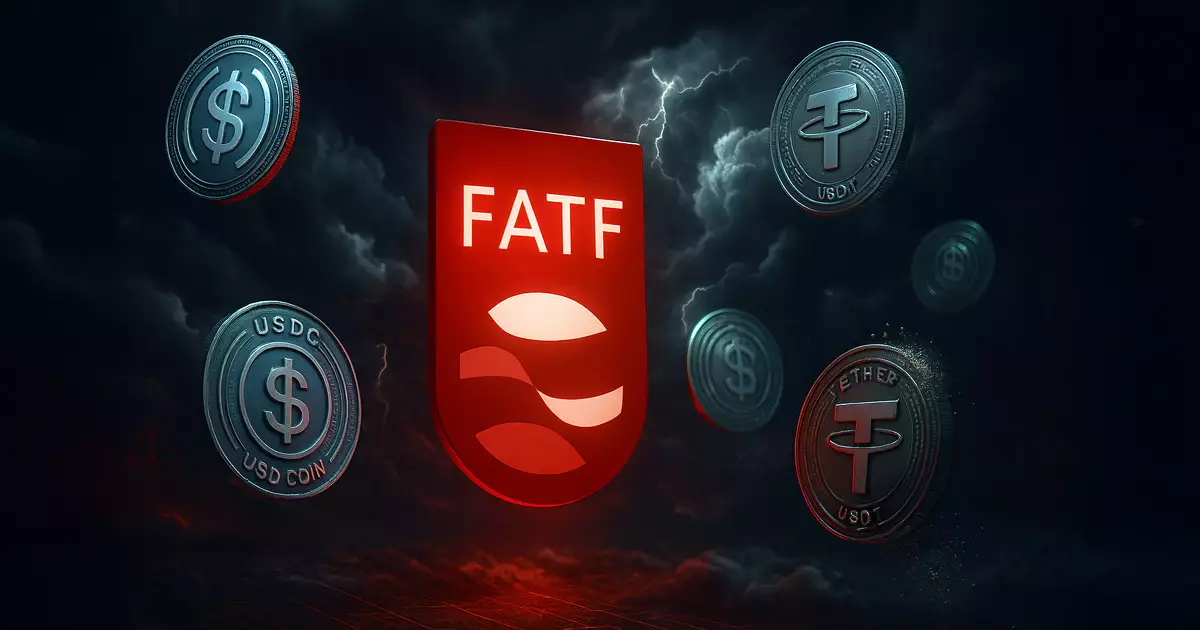The Financial Action Task Force (FATF) paints a troubling portrait of the so-called advancements in global cryptocurrency regulation. While headlines trumpet incremental progress—such as 73% of surveyed jurisdictions adopting laws aligned with the Travel Rule—the reality beneath this veneer is starkly different. The enforcement of these laws remains largely superficial and ineffective. Nearly 60% of these countries have yet to issue any compliance advisories or directives, rendering their legislative efforts largely symbolic. This gap between legislative intentions and enforcement efficacy signals a concerning disconnect that undermines global financial security and regulatory credibility.
Stablecoins: A Growing Nerve Center for Illicit Activity
Stablecoins were initially hailed as a stabilizing force within the volatile world of digital assets. However, FATF’s revelations expose a darker truth: these tokens have become the favored vehicle for illicit actors. The surge in stablecoin usage—exceeding $30 trillion in volume last year—has made them irresistibly attractive for criminal enterprises. Their low transaction costs, rapid settlement speeds, and pervasive liquidity empower bad actors to exploit systemic weaknesses. This dynamic isn’t just a regulatory challenge; it’s a systemic failure to anticipate and mitigate the risks arising from these crypto innovations.
The North Korean Hack: A Case Study in Poor Oversight
One damning example in the FATF report is the massive $1.46 billion theft from the Bybit exchange, orchestrated by North Korean cybercriminals. The sophisticated blend of social engineering, laundering via mixers, OTC traders, and over 125,000 Ethereum wallets highlights how vulnerable current oversight mechanisms are. Even more disheartening is the fait accompli that only a negligible 3.8% of these stolen funds were recovered. This demonstrates, yet again, that the crypto space remains a safe haven for state-sponsored cyber theft networks, despite its supposed transparency.
Regulatory Paralysis and Fragmented Enforcement
FATF’s data reveal a fragmented global landscape: only one jurisdiction is fully compliant with Recommendation 15, which governs oversight of virtual assets. While 29% are “largely compliant,” nearly half remain stuck at partial compliance, and over 20% are non-compliant. This balkanization of regulatory commitment is dangerous. Without a harmonized regulatory framework, illicit actors will continue exploiting jurisdictional loopholes, effectively “shopping” for lax environments. Worse still, decentralized finance (DeFi) platforms—often with opaque governance and anonymous control—are largely evading meaningful regulatory scrutiny, despite regulators’ calls for licensing.
Why Piecemeal Regulation Will Embolden Crime, Not Curb It
From a practical center-right perspective, the FATF report underscores the failure of globally fragmented and hesitant regulatory approaches. Piecemeal compliance fosters regulatory arbitrage, undermining free-market fairness and fueling illicit finance. Governments cannot afford to treat crypto regulation as a tick-box exercise or a purely technological challenge; it demands robust enforcement, clear legal frameworks, and accountability. Stablecoins approaching mass adoption magnify the risks of regulatory inertia. The urgent need is for a pragmatic and firm regulatory regime that balances innovation with security—otherwise, we risk allowing the crypto sector to become a parallel shadow economy that undercuts legitimate enterprise and tax systems alike.

